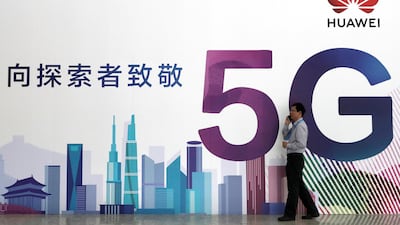Huawei will face UK officials on Monday to answer questions over security concerns surrounding its 5G work.
It comes after details emerged from a confidential meeting of the UK’s National Security Council that Chinese firm Huawei could be approved for a limited role in developing Britain's 5G network.
The move has been surrounded by controversy over fears the technology could be used by China to spy on the UK.
A report published last month by the Henry Jackson Society think tank concluded that it is “high-to-certain that Huawei acts on behalf of China’s intelligence organs”.
The US administration has hit Huawei with severe sanctions and banned American telecoms firms from installing foreign-made equipment that could pose a threat to national security.
US President Donald Trump renewed concerns about Huawei during his visit to the UK.
Huawei Global Cyber Security and Privacy Officer, John Suffolk, will appear in front of Britain's Science and Tech Committee on Monday to answer questions on the "possible security risks involved with 5G communications", parliament said.
Under Chinese law, companies must support the state’s intelligence work which has raised fears the technology could be used for espionage.
On Friday a report by telecoms lobby group GSMA, which represents the interests of 750 mobile operators across Europe, revealed that a ban on Huawei would add £48.7bn (Dh227.6bn) to the cost of 5G networks in Europe and delay the technology by about 18 months
GSMA has already voiced concerns about the consequences of a full ban on Huawei, whose products are widely purchased and used by operators in Europe.
"Half of this (additional cost) would be due to European operators being impacted by higher input costs following significant loss of competition in the mobile equipment market," the report said.
"Additionally, operators would need to replace existing infrastructure before implementing 5G upgrades."
According to the report, a ban would also delay the deployment by 18 months of the technology, which will be used in areas ranging from self-driving cars to health and logistics.

